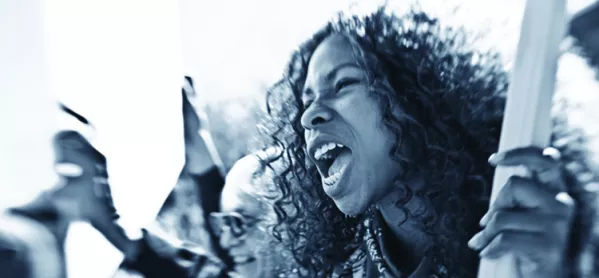In the distant past I worked in Unison’s health group. Whilst we were not quite fighting the national media off with a stick, it was normally possible to get a good issue running.
The press love an NHS story and my colleagues in health, over the way in “Strike Central” (as the Daily Mail once called our offices), know how to satisfy their cravings.
Moving over to education was a bit of shock. The phone went dead. Trying to get even progressive Fleet street journalists interested in support staff is very difficult indeed.
Education coverage has improved and Ed Balls and Michael Gove’s years certainly raised interest, but as a recent Ipsos MORI poll showed, there is a way to go.
Only 1 per cent of the population see education as the most important issue, whilst 15 per cent see it is one of the most important issues.
Compare this with health: some 17 per cent said health was the most important issue, and 49 per cent agreed it was one of the main issues. Remember, this poll followed a lot of media coverage on schools funding.
Rather than being shocked by the results, I was narked. Narked that we had only made a small dent in the car of public consciousness rather than whacked a hole in its bonnet.
Yes, I know you can’t trust polls... blah de blah... but there is no other evidence to suggest that we have resonated with the general public.
‘We need a core message’
True, we are are fighting against 60 years of a system that has eulogised angelic nurses and lantern-jawed doctors, but are we also undermining ourselves by the competing messages we are sending out?
I was struck that on the day that the Ipsos MORI poll came out, in addition to stories about school funding, TES was running stories calling for increased cash to go to early years and also an article by the Association of Colleges calling for more funds for FE.
Add to this continued calls from higher education, which always wants more and usually gets it (increased student fees and the abolition of the cap on student numbers already having boosted its income).
Compare these competing messages with health’s simplicity: Save the NHS - increase funding now or your baby gets it (Labour by-election campaign in Copeland).
“But education is more complex and diverse,” you say. Erm, health encompasses community nursing, GPs, dentists, primary care, occupational therapy, huge district hospitals and an increasing host of private companies, all asking for more cash but doing so under the NHS banner.
I’m not saying we should give up - we absolutely need to press for more funding in the budget - and we need to keep education in the limelight. As Jonathan Simons has noted, simply hoping that education goes back to being overlooked carries enormous risks.
But, to keep education in the spotlight, maybe we need a common purpose and a central message.
“Increase education funding or you baby won’t get it” - no sure start, overcrowded primary schools, a narrow curriculum in a crumbling secondary school, a minimum-wage apprenticeship, an under-resourced FE college, a debt-laden university education and a wasteland that was once adult education.
Like health, education is cradle to the grave, and we should be shouting together - not competing for the same air.
Jon Richards is head of education workforce at Unison. He tweets at @tiddymoke
Want to keep up with the latest education news and opinion? Follow TES on Twitter and like TES on Facebook




